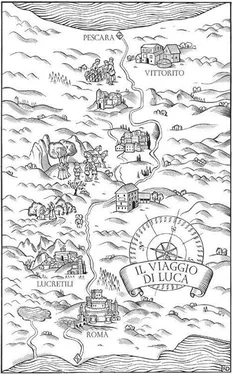Philippa Gregory - Changeling
Здесь есть возможность читать онлайн «Philippa Gregory - Changeling» весь текст электронной книги совершенно бесплатно (целиком полную версию без сокращений). В некоторых случаях можно слушать аудио, скачать через торрент в формате fb2 и присутствует краткое содержание. Год выпуска: 2012, ISBN: 2012, Издательство: Simon & Schuster, Inc., Жанр: Старинная литература, на английском языке. Описание произведения, (предисловие) а так же отзывы посетителей доступны на портале библиотеки ЛибКат.
- Название:Changeling
- Автор:
- Издательство:Simon & Schuster, Inc.
- Жанр:
- Год:2012
- ISBN:9780857077332
- Рейтинг книги:5 / 5. Голосов: 1
-
Избранное:Добавить в избранное
- Отзывы:
-
Ваша оценка:
- 100
- 1
- 2
- 3
- 4
- 5
Changeling: краткое содержание, описание и аннотация
Предлагаем к чтению аннотацию, описание, краткое содержание или предисловие (зависит от того, что написал сам автор книги «Changeling»). Если вы не нашли необходимую информацию о книге — напишите в комментариях, мы постараемся отыскать её.
Changeling — читать онлайн бесплатно полную книгу (весь текст) целиком
Ниже представлен текст книги, разбитый по страницам. Система сохранения места последней прочитанной страницы, позволяет с удобством читать онлайн бесплатно книгу «Changeling», без необходимости каждый раз заново искать на чём Вы остановились. Поставьте закладку, и сможете в любой момент перейти на страницу, на которой закончили чтение.
Интервал:
Закладка:
She did not hesitate. She had been raised to do her duty by the great household and she had a sense of obligation to the people who lived on the lands of Lucretili. Her father, she knew, had left the castle and the lands to her; these people were in her charge. They would want to see her at the head of the table, they would want to see her enter the great hall. Even if her eyes were red from crying over the loss of a very beloved father, they would expect her to dine with them. Her father himself would have expected it. She would not fail them or him.

There was a sudden hush as she entered the great hall where the servants were sitting at trestle tables, talking quietly, waiting for dinner to be served. More than two hundred men-at-arms, servants and grooms filled the hall, where the smoke from the central fire coiled up to the darkened beams of the high ceiling.
As soon as the men saw Isolde followed by the three women of her household, they rose to their feet and pulled their hats from their heads, and bowed low to honour the daughter of the late Lord of Lucretili, and the heiress to the castle.
Isolde was wearing the deep blue of mourning: a high conical hat draped in indigo lace hiding her fair hair, a priceless belt of Arabic gold worn tightly at the high waist of her gown, the keys to the castle on a gold chain at her side. Behind her came her women companions, firstly Ishraq, her childhood friend, wearing Moorish dress, a long tunic over loose pantaloons with a long veil over her head held lightly across her face so that only her dark eyes were visible as she looked around the hall.
Two other women followed behind her and as the household whispered their blessings on Isolde, the women took their seats at the ladies’ table to the side of the raised dais. Isolde went up the shallow stairs to the great table, and recoiled at the sight of her brother in the wooden chair, as grand as a throne, that had been their father’s seat. She knew that she should have anticipated he would be there, just as he knew that she would inherit this castle and would take the great chair as soon as the will was read. But she was dull with grief, and she had not thought that from now on she would always see her brother where her father ought to be. She was so new to grief that she had not yet fully realised that she would never see her father again.
Giorgio smiled blandly at her, and gestured that she should take her seat at his right hand, where she used to sit beside her father.
‘And you will remember Prince Roberto.’ Giorgio indicated a fleshy man with a round sweating face on his left, who rose and came around the table to bow to her. Isolde gave her hand to the prince and looked questioningly at her brother. ‘He has come to sympathise with us for our loss.’
The prince kissed her hand and Isolde tried not to flinch from the damp touch of his lips. He looked at her as if he wanted to whisper something, as if they might share a secret. Isolde took back her hand, and bent towards her brother’s ear. ‘I am surprised you have a guest at dinner when my father died only yesterday.’
‘It was good of him to come at once,’ Giorgio said, beckoning the servers who came down the hall, their trays held at shoulder height loaded with game, meat, and fish dishes, great loaves of bread and flagons of wine and jugs of ale.
The castle priest sang grace and then the servers banged down the trays of food, the men drew their daggers from their belts and their boots to carve their portions of meat, and heaped slices of thick brown bread with poached fish, and stewed venison.
It was hard for Isolde to eat dinner in the great hall as if nothing had changed, when her dead father lay in his vigil, guarded in the chapel by his men-at-arms, and would be buried the next day. She found that tears kept blurring the sight of the servants coming in, carrying more food for each table, banging down jugs of small ale, and bringing the best dishes and flagons of best red wine to the top table where Giorgio and his guest the prince picked the best and sent the rest down the hall to those men who had served them well during the day. The prince and her brother ate a good dinner and called for more wine. Isolde picked at her food and glanced down to the women’s table where Ishraq met her gaze with silent sympathy.
When they had finished, and the sugared fruits and marchpane had been offered to the top table, and taken away, Giorgio touched her hand. ‘Don’t go to your rooms just yet,’ he said. ‘I want to talk to you.’
Isolde nodded to dismiss Ishraq and her ladies from their dining table and send them back to the ladies’ rooms, then she went through the little door behind the dais to the private room where the Lucretili family sat after dinner. A fire was burning against the wall and there were three chairs drawn up around it. A flagon of wine was set ready for the men, a glass of small ale for Isolde. As she took her seat the two men came in together.
‘I want to talk to you about our father’s will,’ Giorgio said, once they were seated.
Isolde glanced towards Prince Roberto.
‘Roberto is concerned in this,’ Giorgio explained. ‘When Father was dying he said that his greatest hope was to know that you would be safe and happy. He loved you very dearly.’
Isolde pressed her fingers to her cold lips and blinked the tears from her eyes.
‘I know,’ her brother said gently. ‘I know you are grieving. But you have to know that Father made plans for you and gave to me the sacred trust of carrying them out.’
‘Why didn’t he tell me so himself?’ she asked. ‘Why would he not talk to me? We always talked of everything together. I know what he planned for me; he said if I chose not to marry then I was to live here, I would inherit this castle and you would have his castle and lands in France. We agreed this. We all three agreed this.’
‘We agreed it when he was well,’ Giorgio said patiently. ‘But when he became sick and fearful, he changed his mind. And then he could not bear for you to see him so very ill and in so much pain. When he thought about you then, with the very jaws of death opening before him, he thought better of his first plan. He wanted to be certain that you would be safe. Then, he planned well for you – he suggested that you marry Prince Roberto here, and agreed that we should take a thousand crowns from the treasury as your dowry.’
It was a tiny payment for a woman who had been raised to think of herself as heiress to this castle, the fertile pastures, the thick woods, the high mountains. Isolde gaped at him. ‘Why so little?’
‘Because the prince here has done us the honour of indicating that he will accept you just as you are – with no more than a thousand crowns in your pocket.’
‘And you shall keep it all,’ the man assured her, pressing her hand as it rested on the arm of her chair. ‘You shall have it to spend on whatever you want. Pretty things for a pretty princess.’
Isolde looked at her brother, her dark blue eyes narrowing as she understood what this meant. ‘A dowry as small as this will mean that no-one else will offer for me,’ she said. ‘You know that. And yet you did not ask for more? You did not warn Father that this would leave me without any prospects at all? And Father? Did he want to force me to marry the prince?’
The prince put his hand on his fleshy chest and cast his eyes modestly down. ‘Most ladies would not require forcing,’ he pointed out.
‘I know of no better husband that you might have,’ Giorgio said smoothly. His friend smiled and nodded at her. ‘And Father thought so too. We agreed this dowry with Prince Roberto and he was so pleased to marry you that he did not specify that you should bring a greater fortune than this. There is no need to accuse anyone of failing to guard your interests. What could be better for you than marriage to a family friend, a prince, and a wealthy man?’
Читать дальшеИнтервал:
Закладка:
Похожие книги на «Changeling»
Представляем Вашему вниманию похожие книги на «Changeling» списком для выбора. Мы отобрали схожую по названию и смыслу литературу в надежде предоставить читателям больше вариантов отыскать новые, интересные, ещё непрочитанные произведения.
Обсуждение, отзывы о книге «Changeling» и просто собственные мнения читателей. Оставьте ваши комментарии, напишите, что Вы думаете о произведении, его смысле или главных героях. Укажите что конкретно понравилось, а что нет, и почему Вы так считаете.












